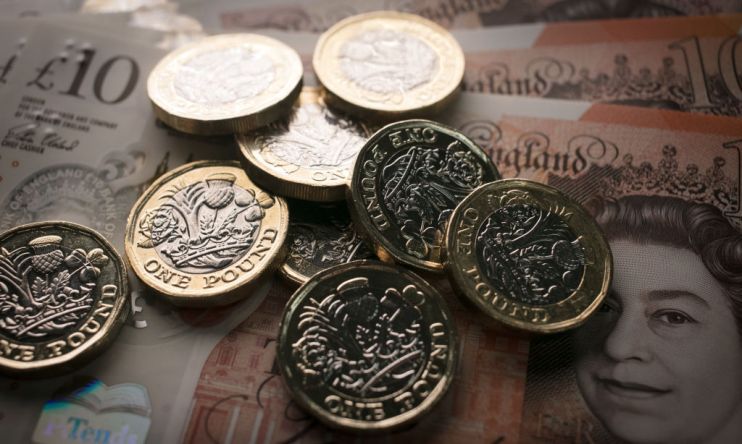Pound on course for best week since Christmas 2020

The pound was on course for its best week against the dollar since December 2020 driven by investors betting on the Bank of England having to keep raising interest rates to get on top of a historic inflation crunch.
Markets are baking in a fifth successive rate hike at the Bank’s next meeting in June and a further 128 basis points of rises by the end of this year.
Threadneedle Street has already lifted rates from a record low 0.1 per cent to a 13-year high of one per cent in around six months.
Higher borrowing costs tend to strengthen the pound – and other currencies – by making it more attractive to hold assets denominated in sterling.
They also ease inflation, reducing the likelihood of investors booking negative real returns.
Data published this week strengthened the case for the Bank to rein in accommodative policy.
Prices are nine per cent higher than they were a year ago, the Office for National Statistics said on Wednesday, the highest inflation rate since the early 1980s.
Unemployment has also dipped to a near-50 year low, although this has been distorted by a large chunk of the population dropping out of the jobs market.
Growing concern over the health of the UK economy has weighed on the pound in recent weeks.
Economists have warned a spending slowdown triggered by a steep rise in living costs eroding households’ spending power may tip the UK into a recession soon.
The dollar weakened after rallying strongly over the last month, driven by the US Federal Reserve pushing through a rapid tightening of monetary policy.
Fed chair Jerome Powell and co have hiked rates 50 basis points for the first time since 2000. They are expected to approve further 50 basis point rises this year.
The European Central Bank has yet to raise rates despite inflation reaching 7.4 per cent in the eurozone, the highest rate since the creation of the area’s currency in 1999.